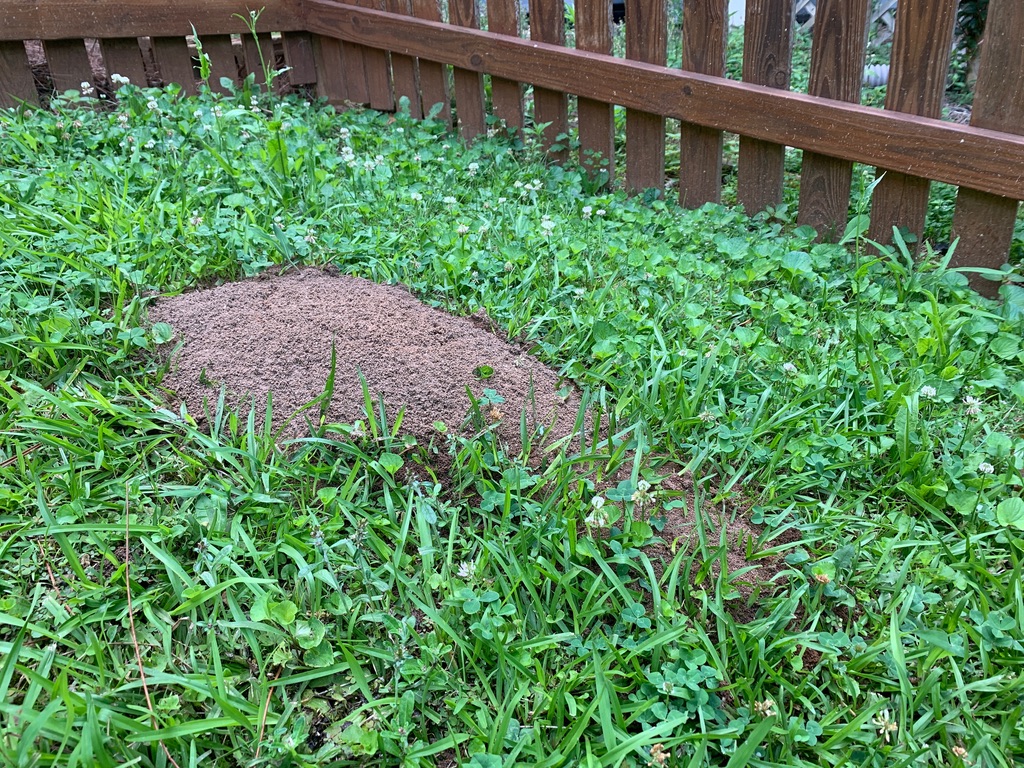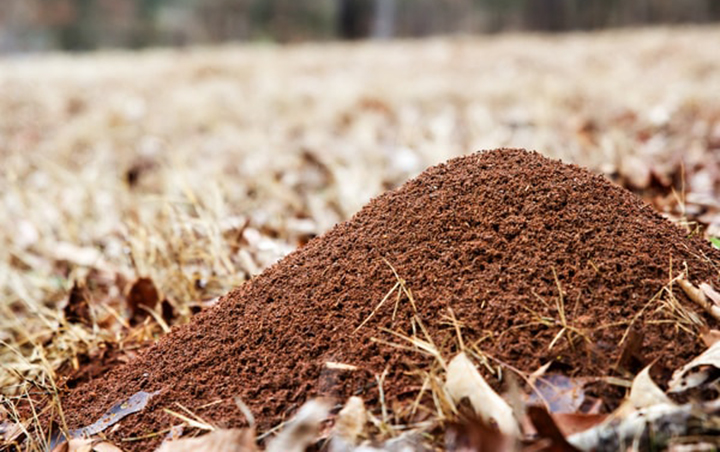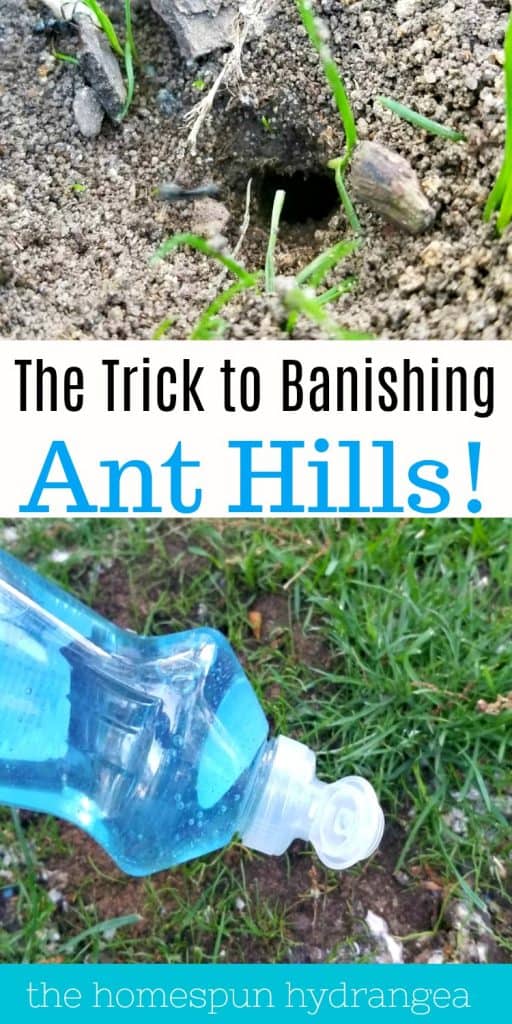To prevent ant hills, keep your yard clean and free of food sources. Additionally, use natural ant repellents around the perimeter.
Ant hills can be unsightly and a nuisance in your yard. Taking preventive measures is vital to keep ants at bay. By following simple steps like maintaining cleanliness, eliminating food sources, and using natural repellents, you can effectively prevent ant hills from forming.
These proactive actions will not only help in maintaining a neat and tidy outdoor space but also protect your property from potential ant infestations. With a little effort and consistency, you can enjoy a pest-free environment without worrying about unsightly ant hills disrupting your outdoor space.

Credit: anypest.com
Understanding Ant Hills
Ant hills, those small mounds of dirt you often find in your garden or yard, are fascinating structures built by ants. These tiny creatures are known for their incredible ability to work together and create complex networks underground. Understanding how ant hills form and why they are important can help you prevent them effectively.
What Are Ant Hills?
Ant hills, also known as ant mounds, are cone-shaped or dome-shaped structures made of dirt and debris. They are created by ants as a result of their nesting activities. Ants dig tunnels and chambers beneath the surface, and the displaced soil is then brought to the surface, forming these characteristic hills.
Importance Of Preventing Ant Hills
Preventing ant hills is essential for several reasons:
- Maintaining a Neat and Clean Outdoor Space: Ant hills can be unsightly and disrupt the aesthetics of your garden or yard. By preventing their formation, you can keep your outdoor space looking tidy and well-maintained.
- Avoiding Damage to Plants and Structures: Ants can cause damage to plants by tunneling under the roots or feasting on leaves and fruits. In addition, their underground activities can weaken the soil around structures like sidewalks and patios. Preventing ant hills helps protect your plants and avoid potential structural issues.
- Reducing the Risk of Infestation: Ant hills serve as nests for colonies of ants. By preventing their formation, you reduce the likelihood of an ant infestation in your home or surrounding areas.
- Promoting Overall Health and Hygiene: Ants carry bacteria and can contaminate food and water sources. Preventing ant hills helps maintain a healthy and hygienic environment, reducing the risk of disease transmission.
Now that you understand what ant hills are and why preventing them is important, it’s time to explore effective strategies for keeping your outdoor space ant-free.
Natural Prevention Methods
Preventing ant hills naturally is essential to maintain a pest-free environment. Here are some effective methods to prevent ant hills without the use of harmful chemicals:
Maintaining Clean Surroundings
Keeping your surroundings clean discourages ants from nesting. Regularly sweep floors, wipe counters, and remove food scraps.
Sealing Entry Points
Seal cracks, gaps, and openings where ants can enter your home. Use caulk or weather stripping to keep them out.
Chemical Prevention Methods
When dealing with ant infestations, using chemical prevention methods can be effective in keeping ant hills at bay.
Ant Repellent Sprays
Ant repellent sprays work by creating a barrier that ants don’t want to cross, effectively keeping them away from your property.
Granular Ant Baits
Granular ant baits are an effective way to target the source of ant infestations, as ants will take the bait back to their colony, eradicating it from within.

Credit: www.wikihow.com
Landscaping Tips
When it comes to preventing ant hills in your yard, proper landscaping is key. By incorporating ant-repellent plants and practicing regular yard maintenance, you can effectively deter ants from taking over your outdoor space. In this section, we will explore two important landscaping tips that can help you keep ant hills at bay: choosing ant-repellent plants and regular yard maintenance. Let’s dive in!
Choosing Ant-repellent Plants
One effective way to prevent ant hills from forming in your yard is by selecting ant-repellent plants. These plants naturally emit scents that ants find repulsive, keeping them at bay. Here are some top ant-repellent plants to consider for your landscaping:
| Plant | Benefits |
| Lavender | Repels ants and adds beauty and fragrance to your yard. |
| Mint | Repels ants and can be used for culinary purposes. |
| Marigold | Repels ants and attracts beneficial insects like ladybugs. |
Incorporating these ant-repellent plants into your landscaping not only adds visual appeal but also serves as a natural deterrent against ant hills. Be sure to plant them strategically throughout your yard, especially near areas where you’ve noticed ant activity in the past.
Regular Yard Maintenance
Regular yard maintenance is crucial when it comes to preventing ant hills. By keeping your yard clean and well-maintained, you discourage ants from building nests and establishing colonies in your outdoor space. Here are some important yard maintenance practices to follow:
- Remove any debris or organic matter, such as fallen leaves or dead branches, that may provide a cozy hiding spot for ants.
- Trim tree branches and shrubs that touch the sides of your house or create bridges onto structures.
- Keep your lawn well-mowed and avoid overwatering, as moist conditions can attract ants.
- Seal any cracks or gaps in your home’s foundation or exterior walls to prevent ants from finding their way inside.
- Regularly inspect and maintain your outdoor structures, such as sheds or play equipment, to ensure they are ant-free.
By incorporating these regular maintenance practices into your routine, you can significantly reduce the likelihood of ant hills forming in your yard and keep pesky ants at bay.
Home Remedies For Ant Control
Home remedies for ant control are effective, affordable, and eco-friendly solutions to keep those persistent pests at bay. Using common household ingredients, you can deter ants from invading your living space without the need for harsh chemicals.
Vinegar Solution
Vinegar is a potent ant repellent due to its strong smell and acidic nature. Create a vinegar solution by mixing equal parts of water and white vinegar in a spray bottle. Spray this solution along ant trails, entry points, and potential hiding spots to create a barrier that ants will avoid. Repeat this process daily to discourage ants from returning to these areas.
Cayenne Pepper
Cayenne pepper is an effective natural repellent that can deter ants from entering your home. Sprinkle a generous amount of cayenne pepper at entry points, around windows, and along ant trails to create a barrier that ants will not cross. The strong scent and spiciness of cayenne pepper are highly effective at deterring and repelling ants without causing harm to humans or pets.
Professional Pest Control Services
When dealing with persistent ant hills, professional pest control services can provide an effective solution. These services are equipped with the expertise and resources to address ant infestations efficiently, helping to prevent the recurrence of ant hills in your surroundings.
When To Seek Professional Help
If ant hills continue to be a recurring issue despite your efforts to eliminate them, it may be time to seek professional pest control services. Their specialized knowledge and advanced techniques can effectively eradicate the ant colonies, preventing further disruptions and damage to your property.
Choosing The Right Pest Control Company
When selecting a pest control company, ensure they have a proven track record in effectively addressing ant infestations. Look for certifications, proper licensing, and positive customer reviews to ensure that you are choosing a reputable and trustworthy service provider. Additionally, request information about the techniques and products they use to ensure they align with your preferences for eco-friendly or pet-safe solutions.
Ant Hill Prevention In Specific Areas
Ant hills can be a nuisance in various areas such as lawns and gardens. Preventing ant hills in these specific areas requires a proactive approach and understanding the behavior of ants.
Preventing Ant Hills In Lawns
To ensure that your lawn stays free from unsightly ant hills, there are a few measures you can take:
- Maintain regular and proper lawn maintenance practices, including mowing the grass to an appropriate height and keeping it well-watered.
- Eliminate any sources of attraction for ants, such as food crumbs or spills, from your lawn.
- Use natural ant repellents like diatomaceous earth or citrus peels sprinkled around the areas where ant hills are likely to form.
- Consider applying ant baits specifically designed to target the species of ants present in your lawn.
Preventing Ant Hills In Gardens
Gardens can be particularly susceptible to ant hills due to the abundance of organic matter and favorable conditions for ants. Here’s how you can prevent ant hills in your garden:
- Clear away any fallen leaves, dead plants, or debris that can serve as potential nesting sites for ants.
- Practice crop rotation and companion planting to deter ants from the garden. For instance, planting marigolds or garlic can help repel ants.
- Use organic mulch or gravel around plants instead of wood chips, which can attract ants.
- Regularly inspect your garden for signs of ant activity, such as small mounds of soil or the presence of ant trails, and take immediate action.
- If necessary, resort to non-toxic ant control methods like pouring boiling water over ant hills or using a mixture of vinegar and water as a natural ant repellent.
By diligently following these preventive measures, you can discourage ant hills in specific areas such as lawns and gardens. Effective ant hill prevention will not only enhance the appearance of your outdoor spaces but also help maintain a pest-free environment for you and your family.

Credit: www.trussvilletribune.com
Frequently Asked Questions Of Prevent Ant Hills
How Do Ant Hills Form?
Ant hills form as ants build mounds to create nests for their colonies, using soil and debris.
Why Are Ant Hills A Problem?
Ant hills can damage lawns, gardens, and structures, and some ants can sting or bite.
What Are Natural Ways To Prevent Ant Hills?
Natural methods to prevent ant hills include using cinnamon, citrus peels, and diatomaceous earth.
How Can I Deter Ants From Building Hills In My Yard?
To deter ants from building hills, keep your yard clean, repair any moisture issues, and use natural repellents like peppermint oil.
Conclusion
To keep ant hills at bay, remember to maintain a clean and clutter-free environment. Seal any entry points and fix leaks promptly. Implement natural deterrents like cinnamon or vinegar, while also considering chemical options if necessary. Regularly inspect your property for signs of ant activity, and address any issues promptly.
By following these steps, you can effectively prevent ant hills and create a pest-free environment. Your home will be protected, and you’ll have peace of mind knowing you’ve taken the necessary steps to keep ants at bay.

I’m MD Tanvir, and I bring years of expertise gained from working closely with pest control companies to the forefront. My journey in the industry has inspired me to launch Bug Battler, a platform aimed at equipping people with the know-how to combat pests autonomously. Through Bug Battler, I aim to empower individuals with practical insights to tackle pest infestations effectively.

